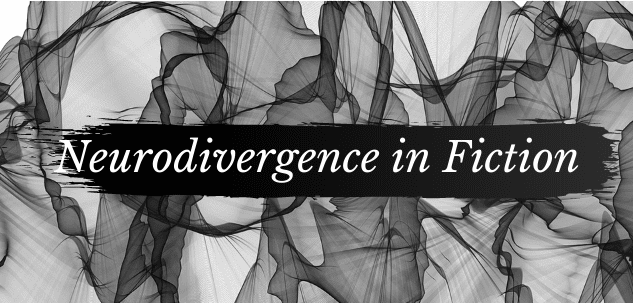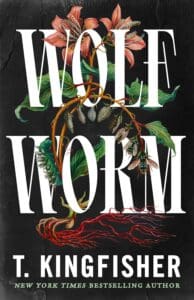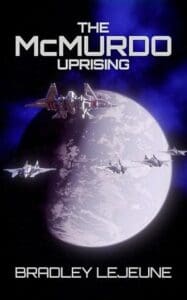
Hello all, and welcome to this week’s article for FanFiAddict’s series on Neurodivergence in Fiction. I cannot understate how appreciative I am for the overwhelming amount of support and enthusiasm I have seen for this series of mine; thank you! For the next several months we will be bringing you a guest post every Wednesday from a neurodivergent author. This will hopefully highlight some of the challenges that come with writing for a largely neurotypical audience, while also giving valuable insight to the craft itself and providing a window into the neurodivergent experience — at least through the lens of fiction.
This week, we are joined by Raina Nightingale who dispels a few of the myths surrounding dyslexia and discusses her views regarding labelling people with disabilities.
As always, if you need to catch up on any articles, check out the landing page for the series here.
And, without further ago, the article.
My sincere thanks to Justin for hosting my article on FanFiAddict as part of his Neurodivergence in Fiction series. I will be writing about dyslexia as an author and a reader, and while some of what I have to discuss will be widely applicable to dyslexics, some of it will not be. As with many things, there is a spectrum, and the effect of dyslexia is greatly influenced by other factors and varies from individual to individual.
As dyslexics, we learn differently; we perceive patterns, but we don’t do well at keeping things in order – like the letters in a word, though it’s hardly limited to that. Many people consider this difference to be a learning disability, a situation which is caused by the surrounding society expecting dyslexics to learn in a way that doesn’t work for us. Once, I was having a conversation about education, particularly pertaining to reading and writing (if I remember correctly), with a friend of mine, in which I was holding forth that sometimes the “standard” way doesn’t work for people, and my friend said to me, “It works well for everyone, that’s why they do it, unless they’re learning disabled.”
I looked at my friend and said, “Is dyslexia a learning disability?”
Without hesitation, my friend replied, “Yes.”
“I’m dyslexic,” I said, “and I can tell you: dyslexia is not a learning disability.”
I recall quite distinctly the shock at that pronouncement, which I’m pretty sure my friend wasn’t expecting, since I read prolifically and love reading, and I write a great deal as well. Aren’t dyslexics supposed to struggle with reading and writing? Certainly, with phonetic reading, but that’s not the only way to read. We read by pattern-matching. We see words as patterns rather than orders of phonetic symbols, and it can be quite efficient, if we’re permitted to learn in the way that works for us. So I’m quite delighted to be writing this, for a series called “Neurodivergence in Fiction.” I tend not to like labels very much, and for a moment I was hesitant to take up the opportunity to write this, since I often feel like labels are very constraining and tend to be part of an outlook where people seeing others as “different,” or as, “That’s your label; this is how you must be” instead of just accepting them as persons, individuals. Then I got to thinking that “Neurodivergence” is such a better label than disability. So much of what’s called a disability is only a disability in the context of a particular societal or social structure, or particular expectations. They often come with abilities that can be quite useful and wonderful if we’re allowed to explore them and be ourselves. Other people, not labeled “disabled,” might be just as disabled or disadvantaged in a different environment. The more I thought about it, the more I realized how much I like the term “Neurodivergence.” My adversion to labels hasn’t gone away, but I’m thinking that it doesn’t have to be a label in that way, the way I don’t like, and if we can just be accepting of “divergence” then one day there won’t be “neurodivergent people” and “neurotypical people.” Oh, there may still be some ways of thinking and brain function that are more common than others, but they won’t be the focus – and, in my humble opinion, a lot of “neurotypical” people may not be quite so neurotypical. They’re close enough that they can meld into the environment and fit without too much agony, but if we didn’t even have a concept of “normal” or “typical,” or, if we did, we didn’t stress it and there was no stigma associated with being different, I think there would be a lot more divergence in the world, and everybody would have the opportunity to really discover and nurture their strengths. Anyway, it would be awesome just to be considered “neurodivergent” and accepted, even if only sort of, with people recognizing we do have strengths, they’re just different ones, instead of being considered “disabled.” Even more than that, I hope that when people have or are working with a child, instead of saying “You’re disabled,” or “You’re learning impaired,” they say, “You’re different and that’s okay,” and work with those differences, instead of shaming and crushing the child’s confidence. I was lucky to have very little of that happen to me, with my parents accepting that just because I couldn’t read as early as some people can, that did not mean I was stupid or even a late bloomer and couldn’t learn other things, and allowing me to explore my intelligence and capabilities, often reading to me books I couldn’t read for myself – and that were well above what kids my age normally read – but which I could understand. The interests of different dyslexics will vary, and some of them turn towards other pursuits than those related to reading and writing, but I would love for us all to be accepted as people, who are often different from each other, instead of being labeled “disabled” with whatever it is, so I’m quite glad to see this series. Anyway, I’m supposed to be writing about dyslexia as related to reading and writing, especially fiction.
I mentioned pattern matching earlier, and this intuitive pattern matching allows me to read quite quickly and naturally, instinctively and effortlessly translating the words on the page into meaning in my brain. (It’s reasonably well-known that dyslexics who don’t get bogged down or end up hating reading because of people trying to make them read phonetically tend to read, on average, faster than ordinary.) This ability to translate (using both halves of the brain) doesn’t develop until a minimum age of about eight (this is when overnight I went from being able to read a scant few memorized words to being able to fluently read almost anything), but it can take years longer. I started devouring almost any fiction I could get my hands on, and I started writing like crazy, even though I can tell you: my spelling was atrocious. I didn’t notice then, and I can still read the scraps I have left now, since I see patterns, instead of sounding out the phonetics. It wasn’t just my spelling that was atrocious. My handwriting was terribly confused, too. What direction does the ‘b’ go? I can figure it out now after well over a decade of reading and writing, but I still struggle with getting the capital ‘N’ the right direction when I’m writing by hand (it always comes out right on the keyboard!), and there are letters I to this day confuse on the keyboard. (I only have this trouble in lower case, where, depending on the font, all you have to do to get them to look the same is flip them around or mirror image them – I think some people avoid this issue by using a font where the letters don’t look the same, but that doesn’t help me).
This pattern matching is also a great deal of how I learned to write the way I do. I never read a manual or book on writing, or on plot development, or character development, or separating the different acts of a story, or so forth – and there are times I’m hesitant to share this, since I’ve seen blog posts and people discussing that they think an author who isn’t aware of these things won’t be able to write well. I once saw someone sharing that one can artfully and intentionally break one of these “rules” or “customs” and do it quite well and have a better story for it, but if an author doesn’t even know the rules that can be a recipe for disaster (I don’t remember the exact words, and I know not all people are like this; in fact, I’ve had conversations with quite a few who definitely are not like this – but there’s enough of this that it can make me uncomfortable). I don’t know the rules – not as rules. I might know them as patterns. I read, and I read, and I read, and I pick up on the patterns as I read. I’m aware of them on an intuitive, but not conscious level. If I made them into rules I focused on, that would break the subtler concentration on the underlying patterns; I wouldn’t understand them, and I wouldn’t be able to feel all the patterns running through the story, and I’d just make a mess breaking the pattern to follow the rule. I learn grammar the same way, by observing and intuitively understanding the pattern. It’s not always perfect, and there are aspects of it that could be improved, but I have to learn by reading and seeing the pattern, not by learning a list of rules that I can’t keep straight and mix up all the time. I also sometimes wonder if people will think that since I learn by reading and pattern matching in this way, I will match some other author’s voice, instead of developing my own. There are even times I’ve wondered if it was a good thing I didn’t come across certain authors, whose works resonated with me on a very deep level, too early in the development of my writing, but I’m also not sure it would have been a problem. I knew when I found my voice – not that I called it that, but I recognized the sense of rightness, the pattern that finally fit me, though it took more time to develop and I’m sure it’s still developing. This influences almost every aspect of my learning; I see patterns, I find patterns, and it’s often not a rule I could describe. What I’m improving, what the last thing I learned in the growth of my writing is, is usually not something I can concisely describe, if at all. This way of pattern matching often allows dyslexics to apprehend quickly what is almost impossible to actually describe, but can only be pointed at and suggested.
Another example something I do very differently from the process I usually see described is character development. I don’t know what any of my character’s personalities would be on a test. I can’t even describe them very well most of the time. I don’t go through a list of questions and answer them one way or another, maybe skipping a few, when I’m designing the character. I know what feels to me like a pattern that describes a character’s personality – a pattern too subtle and intricate for me to fully describe, and so subtle that I can’t even necessarily answer “In this circumstance, what would your character do?” questions, since the circumstance is only an abstraction. No two events are exactly the same, and thus the character may respond quite differently to two – or more – different events that are quite similar to an external observer, but there’s nothing random about it. It corresponds to the character’s personality. I just sense whether or not something fits in the pattern, whether a particular action or event or thought or feeling complements or completes the pattern, or whether it’s jarring and clashes with the pattern. And I have to see the whole pattern, I have to see the occurrence in the pattern to know that. The same principle is in play when I add a new element to a story, or when I grasp the plot. I’m really neither a plotter nor a pantser, and I don’t feel like I’m even anything quite in-between, but like the way I work is just different. My characters and stories often run away with me, but usually in a way that’s somewhat predictable, if that makes sense to anyone.
I don’t know if I should mention this, but I also experience a form of synesthesia which, along with other aspects of my personality, complements the dyslexia, and plays into how the dyslexia manifests; every dyslexic is unique. Anyway, how I pattern-match, combined with the other aspects of my thought, affects a lot of things for me (everything?), and I can’t enumerate all of them or quantify and describe them, but I often try to make sure I don’t show off, since I think other people will be uncomfortable by the way I learn and function. There are some things I really struggle with, some things that give me a headache if I try to work on them too hard, some things I can never get straight, or can keep straight only after a great deal of difficulty, but there are other things I do splendidly in a very unconventional way, and I worry that if I mention them, or go into detail, other people will feel less than … something I really don’t want. Then there are also the things about my process that I can’t describe. This brings us to my final thought.
I wonder if part of the reason why so many people consider many types of “Neurodivergence” to be a “disability” is because a lot of people are deeply insecure, and it’s much easier – or they imagine that it’s much more comfortable – for them to focus on what other people can’t do, or struggle with, and try to bring those inabilities frontstage, since that makes them feel capable, whereas if they focused on and saw the things that divergent people can be really, really good at then they would feel useless and incapable. I think this insecurity, and the competitive – in the bad way, not the good way where you cheer for your competitor and the goal is for both of you to do the best – mindset it engenders afflicts a lot of society. It sets up a negative feedback, where value is set by a particular kind of performance, and then people feel insecure about whether they can perform, resulting in a great deal of difficulty connecting either to their own value as persons or to the value of other people as persons, regardless of what we can or cannot do. So instead of seeing the beautiful ways in which we’re different and have different strengths, and finding ways to bring out and complement everyone’s strengths, people feel insecure and threatened by other people who are capable – and incapable – in a divergent or unconventional way, who don’t fit in the norm. I would really like us to see that everyone is a person, and has value because they’re a person, regardless of what they can or can’t do. That respect and acceptance aren’t earned by whether or not we can do something society values or deems useful, but by the fact that we’re all persons (and, as an aside, I think it will help us to value a lot of abilities that, for the most part, currently get missed).
About the Author

Raina Nightingale has been writing high fantasy since she could read well enough to write her stories with the words she knew (the same time that she started devouring any fiction she could touch). She especially loves dragons, storms, mountains, stars, forests, volcanoes, a whole lot of other things, and characters who can make you feel what they do (up to a point). When she’s not learning and exploring either her fantasy worlds or this one, she enjoys playing with visual art, among other things. She will always believe that kindness is stronger than hatred and that we will never be aware of all the magic in the world.
Twitter: https://twitter.com/areaer_novels
Author Website: https://enthralledbylove.com/novels/
Kobo: https://www.kobo.com/us/en/search?query=raina%20nightingale&fcsearchfield=author



Leave a Reply